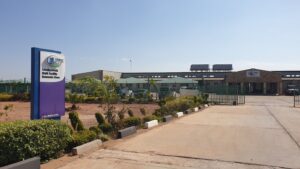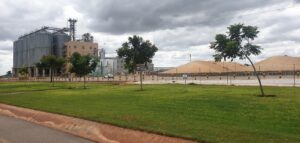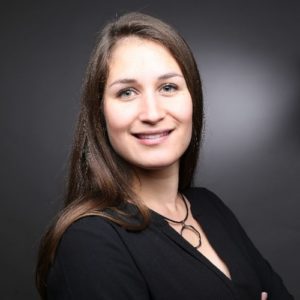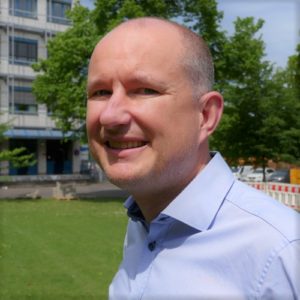This blog was written for the RSA Blog Student Summer Series that will highlight graduate student success in regional studies across the globe throughout the summer.
Special Economic Zones (SEZs) are increasingly used as spatial policy instruments for regional and industrial development in countries of the Global South. While they used to be seen as deregulated, privatized spaces, younger SEZs are being set up under new frames and political goals. The United National Conference on Trade and Development expects SEZs to “make a positive contribution to the environmental, social and governance (ESG) performance of countries’ industrial base” – so, contributing to environmental upgrading. Some examples already show active developments of eco-friendly SEZs, e.g. in South Africa. Our case study, the Lusaka South Multi Facility Economic Zone (LS MFEZ) in Zambia, also belongs to this new generation of eco-friendly SEZs. We show that the institutional framework – regulations and measures – at both SEZ and firm level enables eco-friendly industrial development in such SEZs.

Lusaka South Multi Facility Economic Zone (LS MFEZ) management building, Lusaka, Zambia. Own photograph, 2022.
Case Study: Lusaka, Zambia
The LS MFEZ is a multi-purpose SEZ including industrial, residential and commercial development to contribute to Zambia economic development. It hosts both foreign and local firms from different sectors such as agro-processing, beverages, pharmaceuticals (e.g. Zambian Breweries/ABInBev, British American Tobacco, Trade Kings). The development is guided by an eco-friendly vision, as put by the LS MFEZ management (see Figure 1): “Our ambition is to sustain the environment whilst we are promoting investment. Now to sustain the environment it means that our behaviour as investors and developers should be speaking positively in favour of our environment”. This eco-friendly behaviour encompasses the exclusion of heavy polluting industries and environmental regulation especially for water management, but also private initiatives based on international standards, as presented in the following.
Eco-friendly considerations are already in place when picking the industries and firms for the LS MFEZ. Heavy polluting industries are excluded, following the initial study by the Japan International Cooperation Agency (JICA) in 2009, which analysed the environmental risks for the site. Water management is particularly important, since water below the Lusaka South MFEZ belongs to an important aquifer. As a consequence, developing an industrial area at this site has been heavily criticized. Environmental regulations to protect the aquifer include a lined ground for raw material to avoid soil and water contamination, and treatment of effluents when water comes in contact with toxins. The firms in the zone confirm the constant monitoring of environmental standards. While some of the firms still use up a lot of water, e.g. a beverage plant, regulatory requirements help to minimize negative environmental impacts.
There are also active measures which are labelled as eco-friendly: The development plan for the Lusaka South MFEZ foresees that 22,48% of the total area remains undeveloped (e.g. as parks and a golf course) to preserve nature as “lungs of the economic zone” (LS MFEZ management) and to serve as natural water catchment areas. Treated wastewater is also returned to the natural system through ponds. The preservation and revaluation of the surrounding Lusaka South Forest Reserve serves to counterbalance the industrial use inside of the zone. Last but not least, the LS MFEZ produces its own renewable energy through a 34 MW and a 54 MW solar plant (below). This green approach helped to attract investors and gave local investors opportunities to expand, by providing cheap space with reliable power supply and an unpolluted working environment.

Solar farm and substation in LS MFEZ, Lusaka, Zambia. Own photograph, 2020.
Regulations and eco-friendly measures are important to held up the reputation of the LS MFEZ, but it also depends on the industries to comply and establish eco-friendly practices. Many foreign investors bring in their international standards that go in line with the zone regulations, so the firms are able to comply to environmental standards. These international standards are in a constant upgrading process. An example is an international firm (see below) in the LS MFEZ which reports to be in competition with sister branches in other countries regarding the performance in water and power usage as well as waste recycling to reduce unnecessary resource depletion. In SEZs, public and private initiatives meet and can form a system of establishing and monitoring eco-friendly practices.

Agro-Processing plant at LS MFEZ, Lusaka, Zambia. Own photograph, 2020.
Of course: All that glitters is not gold. Some industries still use up a lot of water, and the planned establishment of a golf course is ecologically questionable and might rather serve other interests. Furthermore, corruption in Zambia is widespread, so actual enforcement and monitoring of environmental regulations might be skewed. But the LS MFEZ proves that SEZs do not have to be deregulated areas to attract investments, but can also involve a vision of modern, eco-friendly industrial spaces, as this fits to international standards and investors requirements. The regulatory framework limits negative ecological impacts, and incentives and eco-friendly measures and infrastructures of SEZs promote environmental upgrading.

Carolina Kiesel (LinkedIn; Twitter) is a research fellow and doctoral candidate at the Institute of Geography, University of Cologne, Germany. Contact: carolina.kiesel@uni-koeln.de.

Peter Dannenberg (Twitter) is a full professor for Human Geography at the Institute of Geography, University of Cologne, Germany.
Are you currently involved with regional research, policy, and development? The Regional Studies Association is accepting articles for their online blog. For more information, contact the Blog Editor at rsablog@regionalstudies.org.